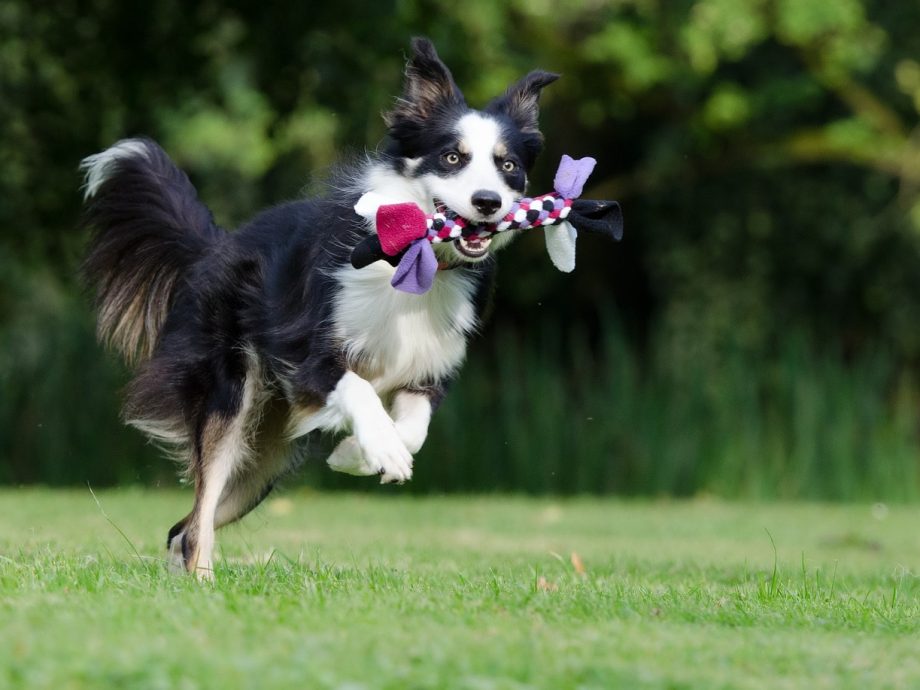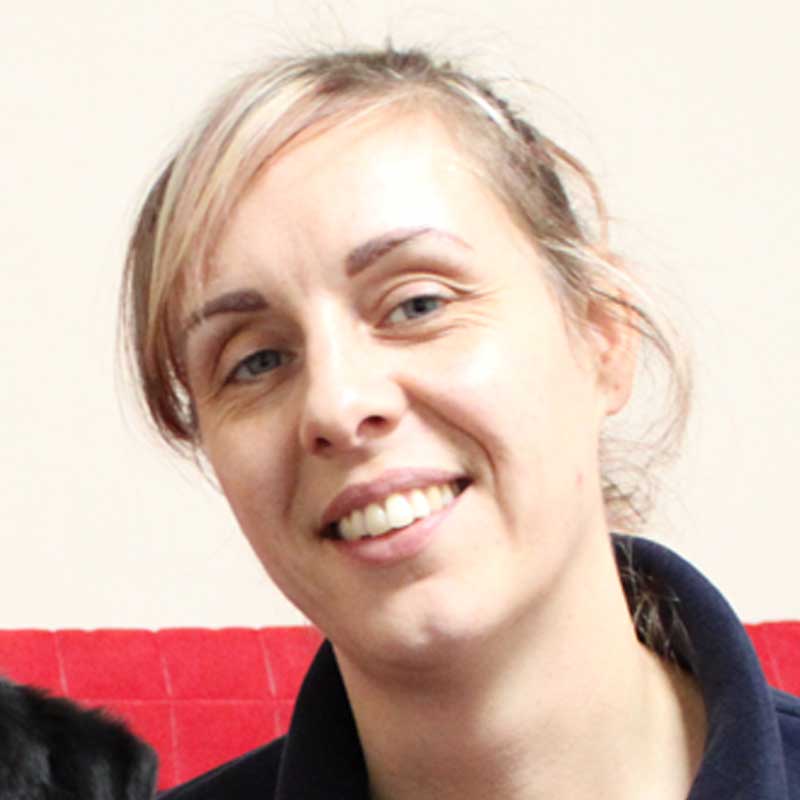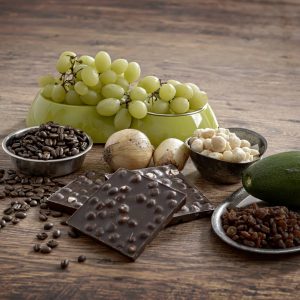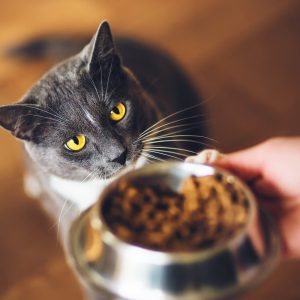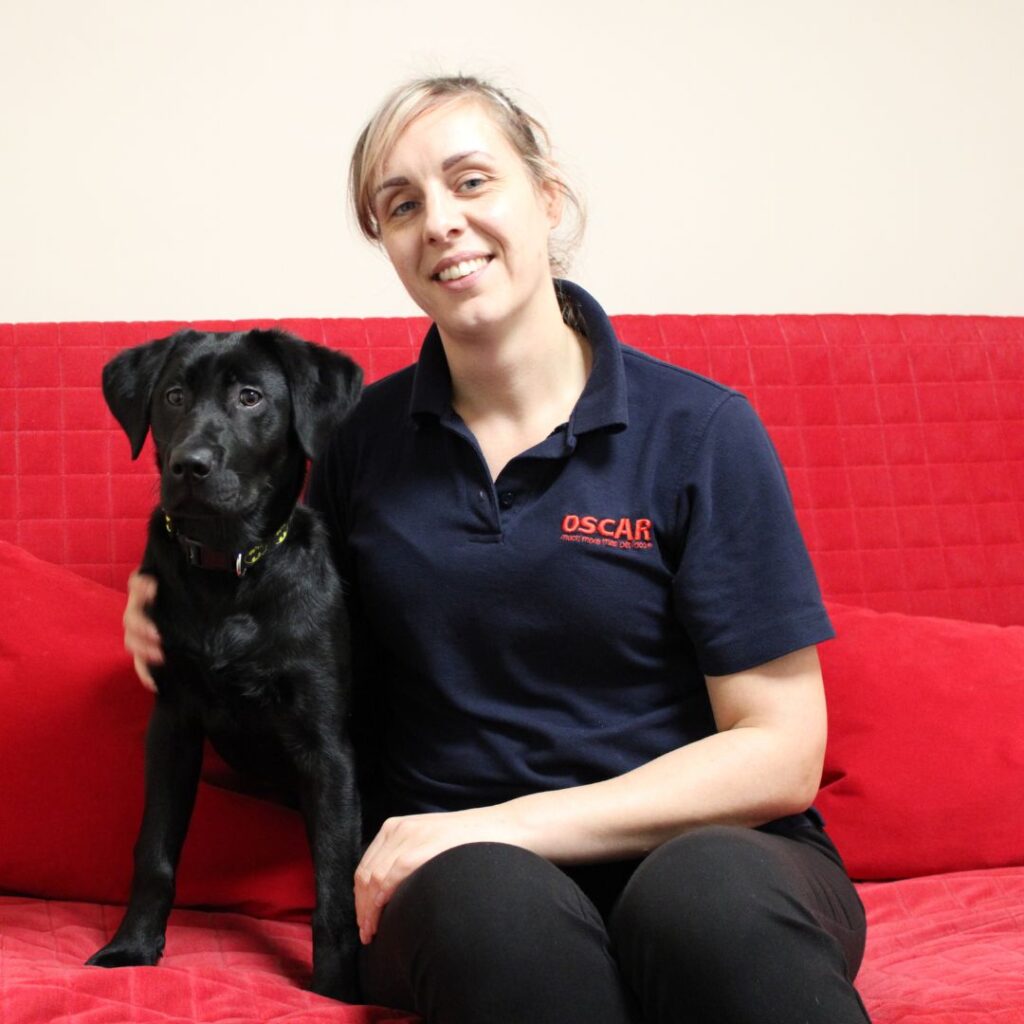Overweight pets can easily become couch potatoes and find it hard to leave the house to exercise. It is important to meet our dog’s exercise and stimulation needs as well as feeding them a balanced diet, correct for their life-stage, to keep them fit & healthy. If your dog starts to receive too many calories alongside too little exercise, the weight can slowly creep up!
Feeding a balanced diet to your dog
Feeding your dog a complete diet, which is correct for its life-stage is important to ensure the correct nutritional balance for its age. If your dog is overweight, it is better to change to a ‘lite’ diet such as OSCAR High Fibre Lite or Pinnacle Plus. These diets have reduced calorie and fat content to help with weight loss.
Weight gain can be avoided by carefully weighing out your dog’s meal every day. OSCAR provide a bespoke measuring scoop with your dog’s food to do this with. You may find that you need to cut down the amount of food your dog eats each day. Following the reduced feeding rate on the bag will help you to do this whilst still maintaining a healthy diet. Be careful not to reduce your dog’s daily feed rate too much or too quickly.
Feeding treats to your dog
Treats are a great way to reward your dog’s behaviour and should be introduced as part of a balanced diet. But be careful … when feeding treats remember to reduce your dog’s meal intake!
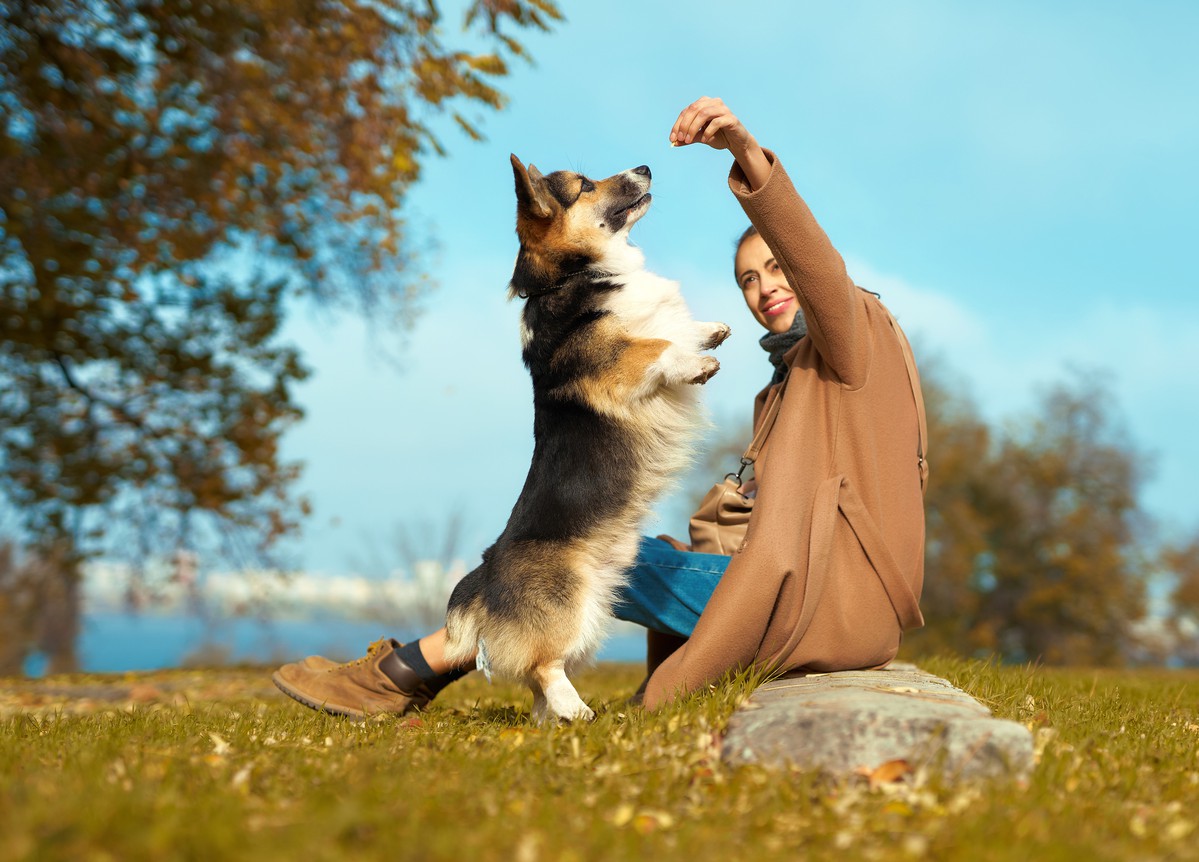
Tips for keeping your dog in ideal shape
- Divide food over 3-4 meals
- Feed a reduce calorie food such as OSCAR High Fibre Lite or Pinnacle Plus
- Gradually increase regular exercise. If your dog has any health concerns, speak to your vet before making any changes.
- Use ‘slow down’ bowl and interactive feeders such as Buster Cubes or the Buster Activity Mat
- Weigh your dog’s food daily
- Feed lower calorie treats and adjust feeding amounts where required
Make mealtimes fun for your dog
Keeping your dog active in the house will help to keep the weight loss on track. Dogs are scavengers by nature, and they like to seek, hunt, and investigate. Making food activity games for your dog will help to encourage this natural behaviour and increase the daily stimulation to help keep your pet more active.
Interactive feeders and Buster Cubes are also a good way to increase your dog’s activity in the house. Try placing some of your dog’s dry food in the cube and let them chase the toy around the house to get the food out.
Hiding food is another way of encouraging your dog to use its natural seeking behaviour. It comes with the added benefit of increasing your dog’s exercise and stimulation. To begin with, try popping your dog in a room with the door closed. In the next door room, hide some food in easy to find places. Then bring your dog to that room and tell him/her to ‘find it’. You may have to point out the hidden food to start with as your dog learns about the game. Over time you can make the game more challenging, perhaps hiding food in the garden or under objects. Toys can also be hidden for your dog to find.
Keep it fun & interactive with your dog
Every dog requires daily exercise to stay fit and well. If your dog doesn’t get enough exercise, they may start to gain weight. Increasing your dog’s daily exercise will help towards a weight loss programme and to keep a trim figure. Exercise is also essential for the well-being and behaviour of your dog. When we talk about exercise, we don’t just mean walking.
There are plenty of fun and exciting ways to give your dog a good mental and physical workout!
Activities to keep your dog more active
- ‘Fetch’ with Catch & Play Ball, Tennis Ball Pack or Durafoam Ball
- ‘Find it’ games with food and toys
- Play ‘Hide & Seek’ with your dog
- Play tug and chase with a Rope toy
- Robin Recall with your dog and family
- Doggy football
- Walk with another dog
- Attend a dog class – obedience, fly ball, agility
- Teach your dog some new tricks
- Ditch the dish and keep mealtimes interactive with food toys
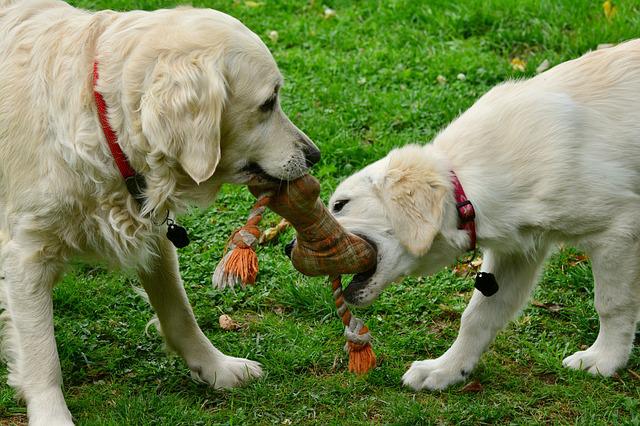
If you think your dog may be overweight and you are worried about the associated health concerns, please contact your vet to arrange a health check and to seek advice on weight management.
This article has been republished with permission from Shelley Audis-Riddell. The original article can be viewed on oscars.co.uk here.

